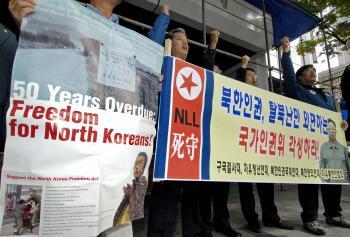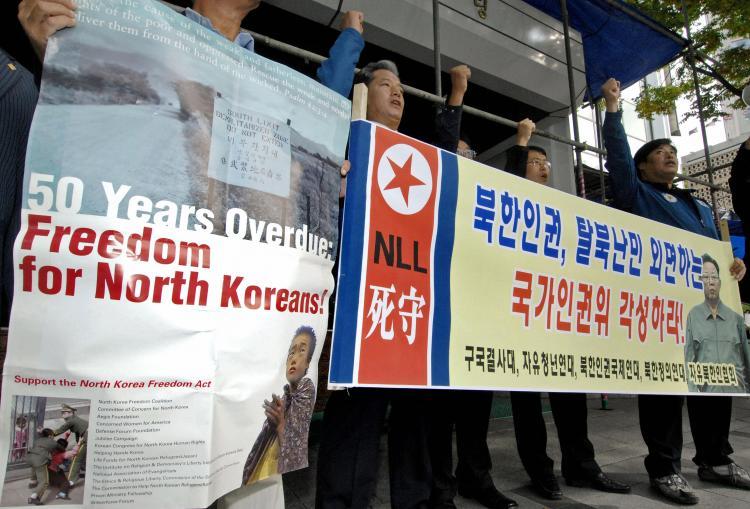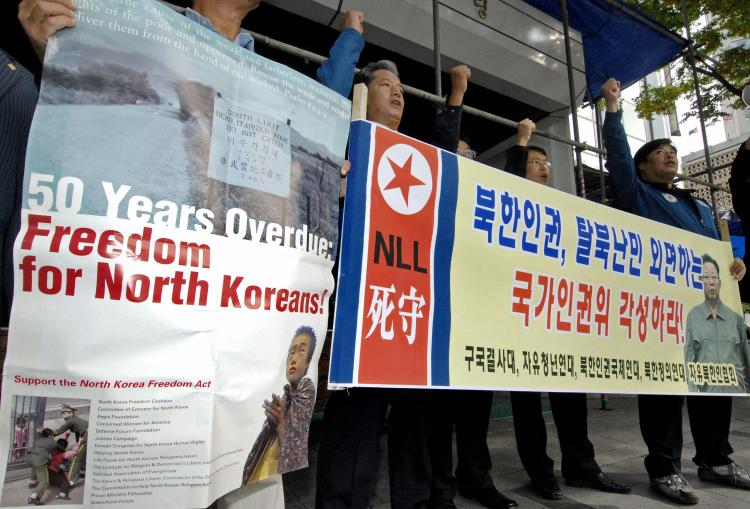Opinion
Take Caution When Engaging Totalitarian Regimes
Recent cases shed light on the dangers of engaging totalitarian regimes—North Korea and the Chinese Communist Party.

South Korean conservative activists stage an anti-North korea rally outside a state human rights committee in Seoul, 18 October 2007, denouncing human rights abuses in North Korea. Jung Yeon-Je/AFP/Getty Images
|Updated:

